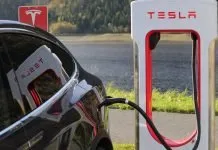In a striking action, indicating how companies are coming under increased pressure to demonstrate environmental, social and governance (ESG) compliance, state-run pension fund AP7 in Sweden said on June 13 that it has blacklisted and sold all its holdings in U.S. electric vehicle giant Tesla, due to continued labor rights abuses in the United States.
It is one of the most high-profile moves so far by a large institutional investor regarding Tesla’s labor practices, especially its attitude toward unionization and worker protection. The AP7 deems the decision to be after years of unsuccessful engagement and dialogue with the company. Even the market share of Tesla faced a sharp decline in Sweden due to controversy surrounding Musk.

Blacklisting Tesla For Labor Rights
The pension fund noted in an official statement that AP7 has voted to blacklist Tesla because of confirmed labor rights violations in the United States. It was followed by the statement saying that shareholder proposals and investor engagement efforts on these issues have not resulted in meaningful change when it comes to engaging Tesla.
After years of engagement with Tesla, shareholder proposals with other investors, the company has failed to make adequate steps to rectify the problems, AP7 said.
The pension fund did not indicate which labor abuses were at the heart of its decision, but the action comes after a slew of reports and investigations into labor practices at Tesla, including anti-union activities at its U.S. factories, most notably its flagship Fremont plant in California.
Big Sell Off
A spokesperson for AP7 told Reuters the fund sold its Tesla stake, comprised of about 13 billion Swedish crowns ($1.36 billion at the time) in late May. The investment had earlier constituted 1% of AP7’s Equity Fund.
At the end of May, AP7 had a total of 1,181 billion Swedish crowns in total assets, or more than $123 billion. The fund administers the default alternative in the Swedish premium pension system, which covers millions of Swedes.
Although the financial implication of the Tesla selloff is inconsequential when considered against the size of the whole portfolio, the symbolic significance of the move is heavy. AP7 can be regarded as a leader in responsible investment in the Nordic region, and its activity often provides the key to ESG practices among institutional investors.
Wider Implications of ESG and Corporate Behaviour
The move by AP7 can contribute to an extended discussion regarding the ESG bona fides of high-profile tech and clean energy companies. Tesla, the company hailed as a leader in electric mobility and renewable energy, has recently been facing increased scrutiny regarding its internal governance, labor practices, and the actions of its CEO, Elon Musk, in the public eye.
The big sell-off will also revive criticism concerning whether ESG investing should play in demanding accountability of corporations. Although other ESG funds have not caught up with excluding Tesla on the grounds of its environmental impact, the move by AP7 is an indication that social aspects, in this case, labor rights, cannot be ignored or overridden by environmental credentials.
Conclusion
The move by AP7 to sell its holdings in Tesla sends a powerful signal that ESG integration is not a mere box-ticking exercise, but a principle in sustainable long-term and responsible investing. As ESG standards continue to develop and mature, corporations might discover that their inability to handle social issues might not only hold a certain reputation risk, but also a significant financial penalty.
In the case of Tesla, the switch may serve as a wake-up call that innovation and sustainability are not sufficient to make a company immune to attention and particularly when it is the manner in which it treats its employees.


















